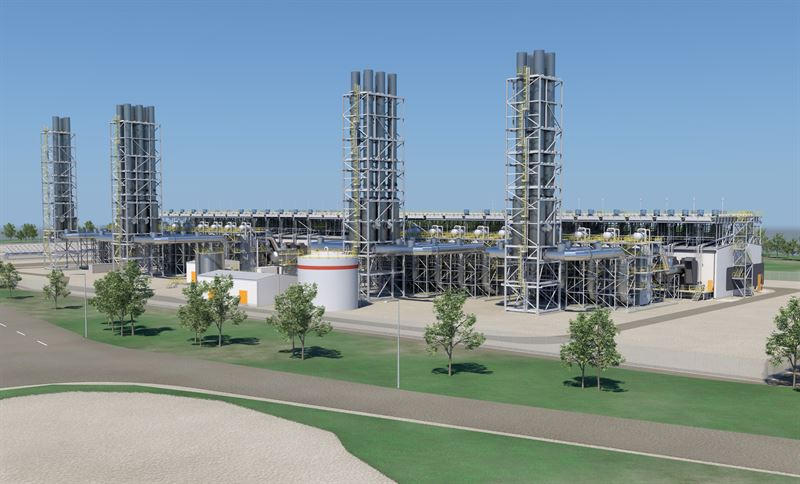The president of the Central Bank of El Salvador, Douglas Rodríguez, confirmed that between January and July of this year, the country achieved a net export of up to US$31 million, making it no longer an energy importer from Honduras or Nicaragua.
Under the economic program of Nayib Bukele, energy exports increased by 3290% compared to the same period last year.
The energy sector played a remarkable role in adding value to GDP.

In the year’s second quarter alone, energy production increased by 15.3%, a remarkable figure considering that the overall economy grew by 2.6% year-on-year during this period.
“El Salvador has never been able to produce energy to meet its own needs, it has diversified its energy matrix, and we no longer depend only on hydroelectric plants but also on geothermal, wind, photovoltaic, and natural gas, and that makes us a dynamic developing country with a favorable economic environment,” explained Douglas Rodríguez.
President Bukele promoted a rapid liberalization of barriers to foreign direct investment in the country, favoring the arrival of private capital to diversify production and boost the energy sector.
The Salvadoran government’s Comisión Ejecutiva Hidroeléctrica del Río Lempa participated in and promoted the inauguration of the Energía del Pacífico (EDP) power plant.
This is an international subsidiary of the U.S. company Invenergy, which has decided to invest up to US$1 billion, taking advantage of the new legal framework that respects property rights.
The energy investments with foreign private capital are the most important in El Salvador’s history. They have been the main reason for the record dynamism of the sector and its exports to neighboring countries such as Guatemala.
“This project is proof that money is enough when no one steals. Since May 1, when the system became operational, we already see positive results from the EDP, as El Salvador has not imported a single megawatt of energy and has been able to participate in the leverage of economic measures and support the price of energy,” Bukele explained.
Measures have also been taken to contain energy prices perceived in the domestic market. Among other measures, Bukele announced the suspension of the tax on transportation tariffs and lowered tariffs on imports of energy sources and food.
EDP POWER PLANT
This plant is the largest and most efficient power plant in El Salvador. It provides approximately one-third of the country’s electricity supply with clean electricity and will help reduce its dependence on oil and heavy fuel oil for power generation.
The project comprises a 378-megawatt (MW) natural gas-fired power plant, a floating storage regasification unit (FSRU), and an approximately 44-kilometer electric transmission line connecting to the Central American Electrical Interconnection System, strengthening the country’s electric grid.
EDP introduces a new source of thermal generation to El Salvador through power purchase agreements with seven of the country’s distribution companies.
U.S.-based Invenergy, a leading privately held global developer and operator of sustainable energy solutions, developed EDP in partnership with El Salvador-based partners Grupo Calleja, VC Energy de Centroamerica, and Quantum Energy.
“Energía del Pacífico is a transformational project for El Salvador and the entire region – a shining example of the enormous opportunity that can be created, despite prior obstacles, when private initiatives have strong government support,” said Michael Polsky, Invenergy Founder, and Chief Executive Officer.
“Leveraging our decades of development, engineering, finance, construction, and operating experience, Invenergy is uniquely positioned to lead this partnership and execute this complex project.”
EDP and Shell have executed a long-term agreement to supply LNG for the project.
In partnership with BW LNG and BW Offshore, LNG will be converted to natural gas on an FSRU that will be permanently moored offshore.
Saam Towage will provide tug support services for the project. LNG delivered to the FSRU will be regasified and transported from the FSRU to the power plant through a sub-sea pipeline to be engineered and constructed by maritime infrastructure contractor Boskalis.

